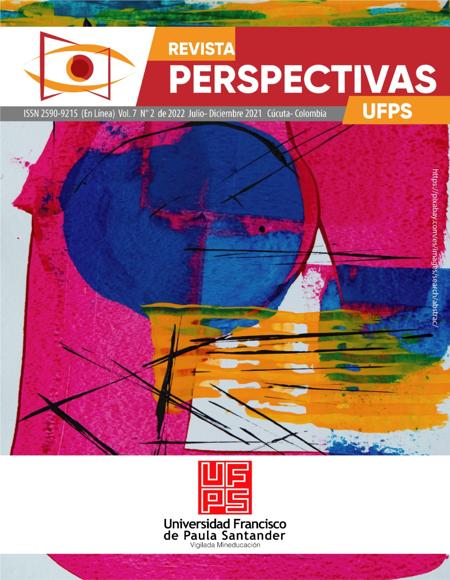Teacher and difference: among experiences, ruptures, and encounters
Maestro y diferencia: entre experiencias, rupturas y encuentros
Main Article Content
The article presents the results of a research that aimed to analyze the interactions between the teacher-intercessor and a student diagnosed with Asperger's. The research approach is qualitative, through a case study analysis. The research approach is qualitative, through case study analysis. Three methodological moments were developed: the preparatory, comprised the construction of the theoretical foundations of the categories Asperger, teacher and interrelations in the school context; the recognition of the case, for which semi-structured interviews were conducted with key teachers in the formation of the student and an in-depth interview was applied to one of the teachers who created the educational institution in which the interactions are developed, self-described as an educational possibility for the difference. Finally, the information was systematized and analyzed using the ATLAS.ti qualitative data processing software. The results showed that the role of the teacher-intercessor is given through experience, difference and crisis
Downloads
Article Details
Acosta, A., & Arráez, T. (2014). Actitud del docente de educación inicial y primaria ante la inclusión escolar de las personas con discapacidad motora. 38(83), 135-154.
Betancur, J. E. (2016). Una inclusión excluyente: Reconfigurando la inclusión en la escuela. Revista de Investigaciones · UCM, 16(27), 178-188. https://doi.org/10.22383/ri.v16i1.69 DOI: https://doi.org/10.22383/ri.v16i1.69
Bravo, V. (2005). El miedo y la literatura. Anales de Literatura Hispanoamericana, 34, 13-17.
Deleuze, G. (1995). Conversaciones. Pre-Textos.
Derrida, J. (1996). No escribo sin luz artificial. Cuatro Ediciones.
Dubet, F. (2005). Exclusión social, exclusión escolar. En J. Luengo, Paradigmas de gobernacion y de exclusion social en la educacion: Fundamentos para el analisis de la discriminacion escolar contemporanea (pp. 93-106). Ediciones Pomares.
Duschatzky, S. (2007). Maestros errantes: Experimentaciones sociales en la intemperie. Paidós.
Luengo, J. (2005). Introducción. En J. Luengo, Paradigmas de gobernacion y de exclusion social en la educacion: Fundamentos para el analisis de la discriminacion escolar contemporanea (pp. 7-15). Ediciones Pomares.
Sepúlveda, L. (2013). Estudio del alumnado con síndrome de Asperger o autismo de alto funcionamiento integrado en el aula ordinaria. Un enfoque desde la actitud docente. Revista de evaluación educativa, 2(1), 53-71.
Skliar, C; Téllez, M. (2008). Conmover la educación. Ensayos para una pedagogía de la diferencia. Buenos Aires: Noveduc.
Strauss, A., & Corbin, J. (2012). Bases de la investigación cualitativa: Técnicas y procedimientos para desarrollar la teoría fundamentada. Editorial Universidad de Antioquia.
Suarez, M. T., & Malagón, J. A. (2018). Voces desde la diversidad. Childhood & Philosophy, 14(29), 149-162. https://doi.org/10.12957/childphilo.2018.30588 DOI: https://doi.org/10.12957/childphilo.2018.30588
Suárez, M. T., & Mariño, L. A. (2018). Filosofía, infancia y diversidad como forma de vida. En Ó. Pulido & M. T. Suárez (Eds.), Infancia, diversidad y filosofía. Voces, gritos y reclamos (pp. 15-34). Editorial UPTC.
Tiramonti, G., & Montes, N. (2009). La escuela media en debate: problemas actuales y perspectivas desde la investigación. Buenos Aires: Manantial.
Veiga Neto, A., & Larrosa, J. (2009). Educação e governamento. En M. C. Lopes & M. D. Hattge, Inclusão escolar: Conjunto de prácticas que governam (pp. 207-218). Autêntica.
Zenteno-Osorio, S., & Leal-Soto, F. (2016). Los afectos en la experiencia de ser profesor de un estudiante diagnosticado con trastorno espectro autista. Pensamiento Educativo, 53(1), 1-14. http://dx.doi.org/10.7764/PEL.53.1.2016.5 DOI: https://doi.org/10.7764/PEL.53.1.2016.5







